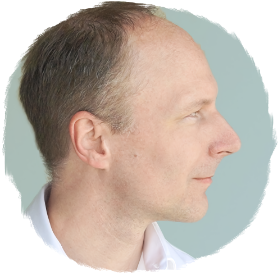For quite a few years now I had the suspicion that tight shoulders, and a lack of mobility in the upper chest may lead to a specific type back pain. I always wondered if this is set into motion (or lack thereof) in young age already, through coercing children into carrying hard back packs to school, and have them sit on chairs; motionless to useless tasks for 6+ hours a day for 12+ years. My argument is this:
When the upper back is stiffer than the lower back, then the lower back starts to compete with the upper back in terms of stiffness. The lower back always tries to be stiffer than the upper back. However, when the lower back is overly tight for extensive periods of time then this can lead to pain as well as injury and disability. Likewise, if the lower back is forced into being less stiff than the upper back, for example by way of mobility drills and exercises, then the lower back might be at risk for injury and disability.
That’s why I think that my shoulder mobility exercises are so important in addressing this type of lower back pain, where the lower back competes with the upper back in terms of stiffness. I write “my” because my exercises are inspired by some of the movement sequences by Moshé Feldenkrais, and these kind of exercises are entirely different to what a fitness influencer or classically trained therapist would consider to be mobility drills and exercises for the shoulders and upper/mid back.
Note: I put some of my neck mobility exercises in my Youtube video series, also available as a paid download here “Tight neck? Here’s help!” [link]
Today I wondered what I could find with Google and Brave in this regard. Turns out, I didn’t find anything. Therefore I looked at the two science books about Back Pain that I own, and leastways found some hints. Here’s the quotes:
Finally, detailed examination of the fascial connections reveals force transmission among the shoulder musculature, the spine, and the abdominal muscles, justifying exercises incorporating larger movement patterns [..] (Page 59, LBD)
Studies of weightlifters have shown those with more flexibility tend to be the better performers but this is specific to the shoulders and hips – not the back. (Page 24, UBFAP)
Olympic weightlifters have proven they are functional using minimal spine motion when setting world records! However, they have wonderful range of motion ability in the shoulders, hips, knees and ankles which they can control with incredible strength. (Page 25, UBFAP)
Our data shows that walking results in very tolerable spine loads, and gentle disc motion which they thrive upon. The data also shows how swinging the arms from the shoulders (not the elbows) also reduces spine loading (Callaghan et aI., 1999). In fact, we have observed up to 10% reduction in spine loads from arm swinging in some individuals. (Page 102, UBFAP)
LBD: Low Back Disorders, 2nd edition UBFAP: Ultimate Back Fitness and Performance, 4th edition, both by S. McGill.

